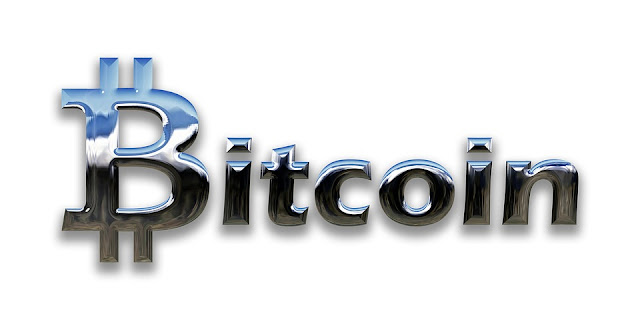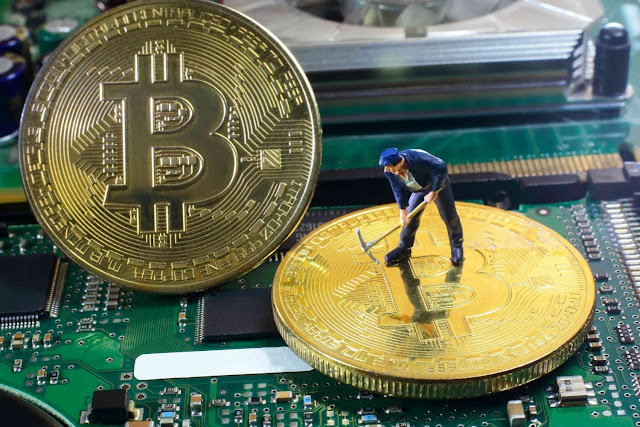Here's a coin, there's a coin. Everywhere a coin coin.......
Bitcoin, Altcoin, Litecoin, Swiftcoin, Peercoin, Mazacoin, Potcoin, Titcoin, Vertcoin, Blackcoin, Primecoin, Emercoin, Dogecoin & even Namecoin.
With some 1100+ altcoin on the market as of November 15, 2017. The term cryptocurrency is no longer just a buzz word anymore. These coins, which is funny, cause their not really coins. More so digital currencies have taken the financial world by storm.
In the Internet Of Things (IOT), technology has moved forward in such a manner that it is now within humanities grasp. To envision a society where global commerce can truly be expressed independent of centralized banks or third party entities.
What was once barely a blimp on few industries radar just some 5 yrs ago, has now flip the movers & shakers of the world into a frenzy. Many are split on it's significance and future. All the while, stirring up extensive considerations.
So the debate is up!
Are these cryptocurrencies here to stay? Are they just disruptive commodities within the financial sector? Is the Bitcoin value in a bubble? Or has society create a multitude of future billionaires & millionaires?
Some of the world most influential personalities have weighted in on this very topic as well.
Take for instance,
During an interview with CNBC at eMerge Miami, Apple's co-founder Steve Wozniak “I remember getting interested in bitcoin some time ago," Wozniak said. “It was $70 for a bitcoin, I went online and you had to have a special bank account at a special bank and I couldn't buy any bitcoin so I gave up. Eventually I got some of them at the $700 stage and it went down to $350. I didn't invest, I did it so I could play with bitcoin.”
Or Jamie Dimon, CEO of JP Morgan who provoked an immense firestorm after his statement on Sept. 12th 2017. Saying that cryptocurrency “is a fraud.” “It's just not a real thing, eventually it will be closed”, at a conference held by CNBC and Institutional Investor.
Michael Novogratz - Billionaire investor, former hedge fund manager at Fortress Investment Group. Said Bitcoin is a bubble. But, should own it. He also predicts by the end of 2018, Bitcoin will be valued at $20,000.
On June 26, 2014 Actor/Investor Ashton Kutcher tweeted “Bitcoin......sort of like internet in the 80s.”Again around Jan. 28, 2016 during the elections Ashton tweeted to his followers “Why do I get the feeling that the best hedge against a Sanders or Trump nomination may be buying bitcoin?”
Microsoft’s co-founder Bill Gates revealed an interesting take on the cryptocurrency. In 2014, in an interview with Erik Schatzker of Bloomberg's Smart Street TV show. Gates is quoted as saying,
“Bitcoin is exciting because it shows how cheap it can be” Bitcoin is better than currency in that you don’t have to be physically in the same place and, of course, for large transactions, currency can get pretty inconvenient.”
Robert Shiller, the Nobel-prize winning Yale economist who predicted the 1999 dotcom & 2006 housing boom. Was asked by Quartz - an online news media what was the best example of a speculative bubble. Shiller replied, “The best example right now is Bitcoin. And I think that has to do with the motivating quality of the Bitcoin story. And I’ve seen it in my students at Yale. You start talking about bitcoin and they’re excited!”
DISCLOSURE: This post contains sponsored ads and I will be compensated if you make a purchase after clicking on my links.
What are the disruptive issues that cryptocurrency bring forth?
- Decentralized banking - No third parties involved
- Accountability - Regulations
- Business as usual - Those relying on physical currency for payment....child-care, odd & end (under the table) jobs etc.,
Pros - Massive returns, protection from payment fraud, transactions cannot be reversed, limiting identity theft, industry growth, short-term gains, liquidity, lower fees, instant payment
Cons - Huge volatility, hacking, dips cause by hard fork, network speed/stalls, infancy - growing pains, anonymous use for illegal activities as in Silk Road, high risk loss, lack of security, lack of regulations, scaling issues.
As mentioned, Bitcoin as well as the Blockchain technology are in it's early development phase. Once the world continues it's integration, as more and more businesses/commerce except this form of payment into society. The evolution of our current fiat system is in fact inevitable. Maybe not so much in the next 3-5 years. Yet, don't be surprised that within 5-10 years a vast percentage of our planet has accepted cryptocurrency.
Albert Einstein is quoted as saying, “The world as we have created it is a process of our thinking. It cannot be changed without changing our thinking.”
What 's your opinion? Yay or Nay on digital currency?
Are you invested?
Do you plan on investing in cryptocurrency in the future?
Whether you are a fan of Bitcoin or maybe not so enthusiastic about these altcoins. The consensus seems to lean toward a continued interest and cultivation in these currencies. A least through the near future.
Watch out for a Bitcoin Accepted Here sign near you!
Copyright © 2017 Andrew Hayes All Rights Reserved
DISCLOSURE: This post contains sponsored ads and I will be compensated if you make a purchase after clicking on my links.























